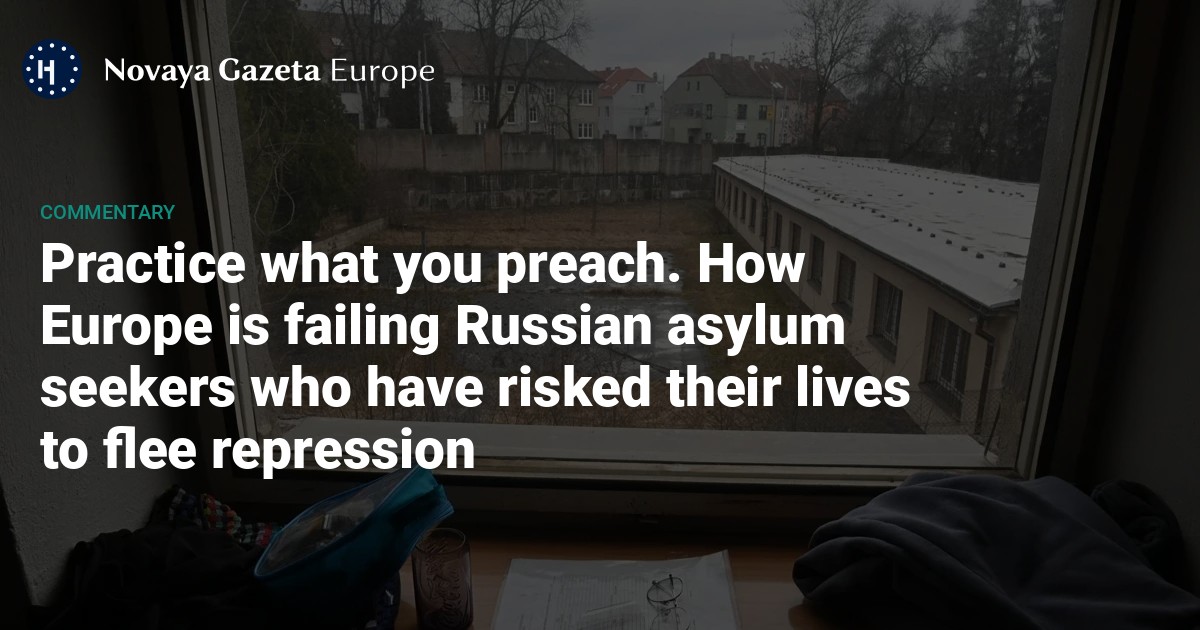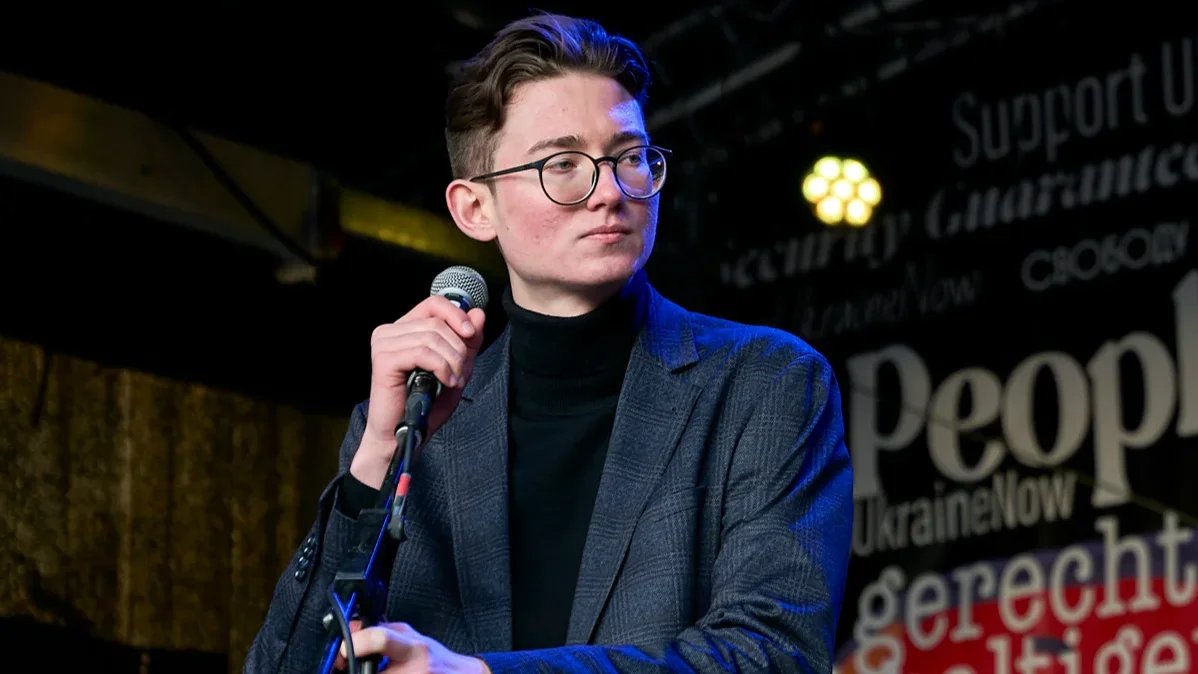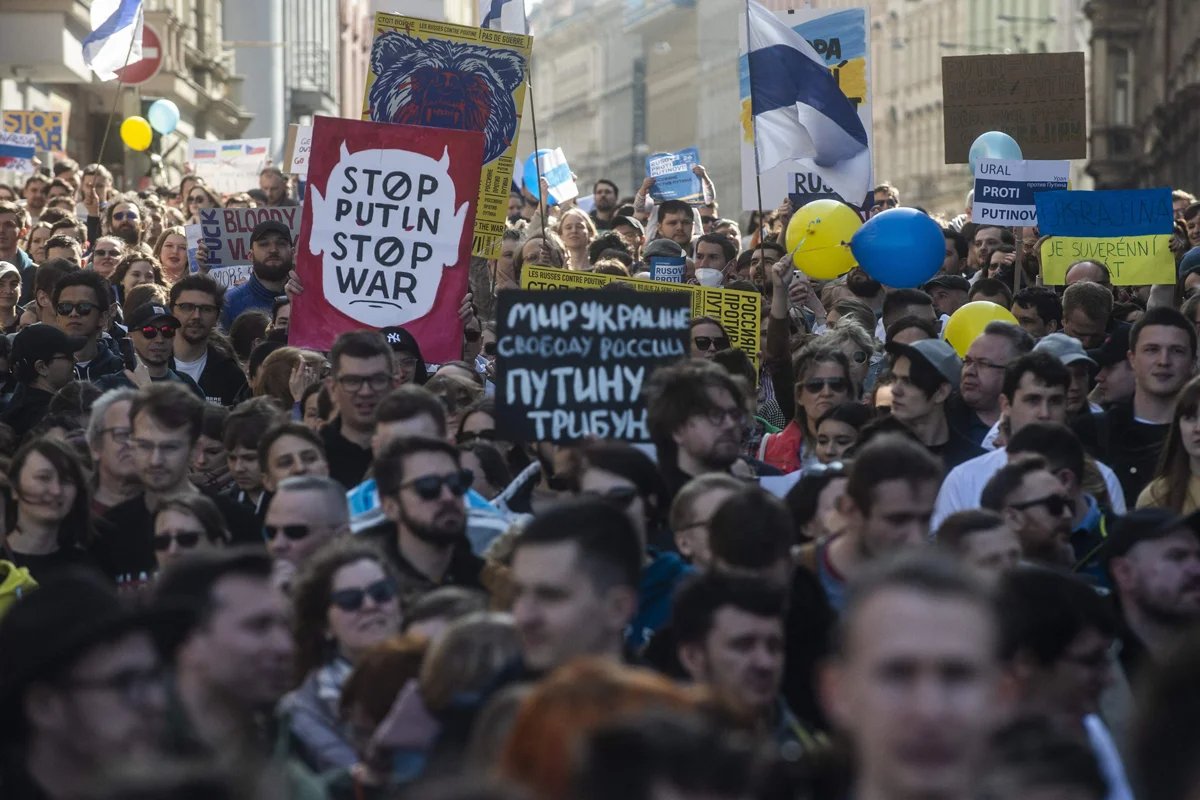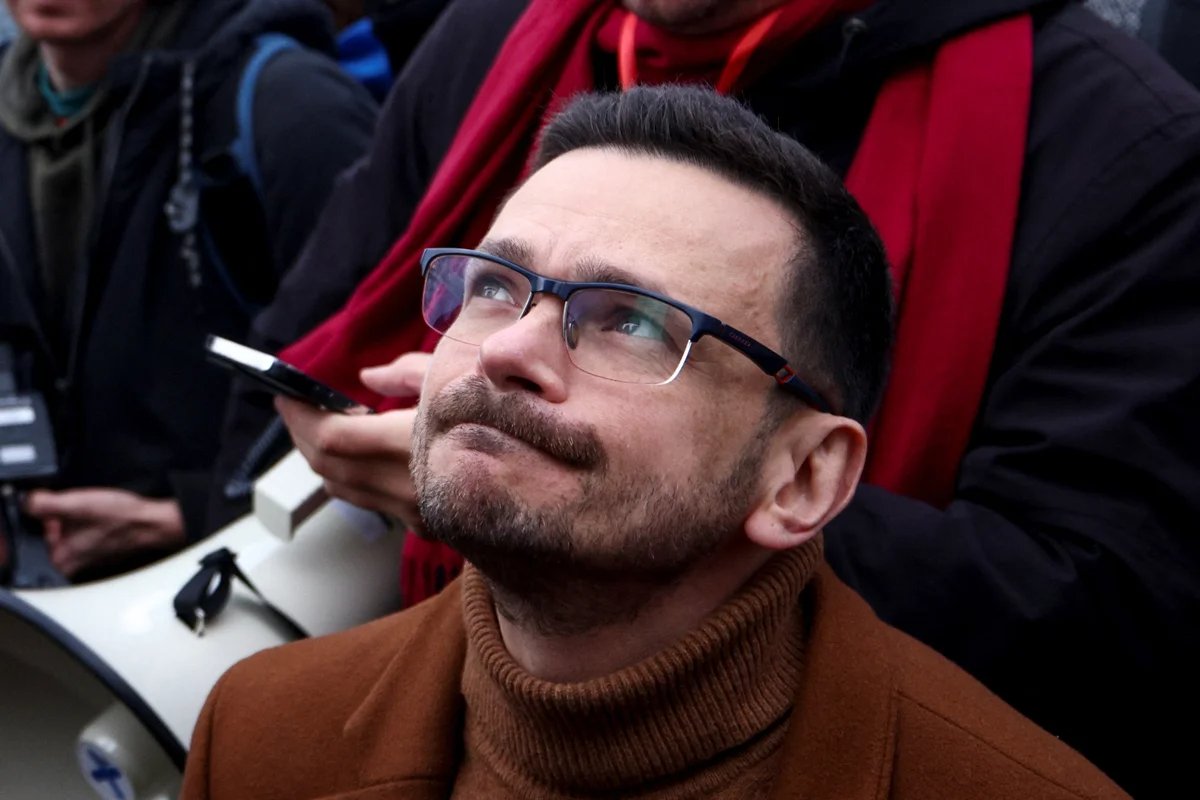



For many Russians who have fled the Putin regime, the freedom they hoped to find in Europe has come with a bitter aftertaste. Earlier this month, I took part in a European Parliament round table discussion dedicated to the problems of Russian refugees in Europe at which I read out a letter from Russian journalist and activist Irina Suslova, who is currently seeking asylum in Czechia.
Suslova’s struggle with European bureaucracy has become emblematic of the invisible wall that hundreds of exiled Russians are running into as they flee oppression at home. Hers is a vivid example of how discrimination on the grounds of nationality can be masked by the rule of law, despite going against both common sense and European values, and is a much-needed reminder of why such prejudice should never go unchallenged, wherever it is found.
Suslova’s trouble with the Russian authorities began in April 2021, when the offices of the independent media outlet where she worked were searched by the police following local protests in support of Alexey Navalny. From then on, Suslova lived in constant fear of criminal charges being brought against her until she went into self-imposed exile in 2023, traveling to Czechia on a tourist visa and opting not to return home when it expired.
However, when she attempted to formalise her status in the country by applying for a so-called tolerance visa two months later, her application was rejected. In the end, the only way for her to remain in Czechia was to apply for international protection, a status designed to protect the rights of those denied the protection of their own countries, which she did in July.
Suslova’s attempts to secure asylum for herself soon turned into a nightmare, however, when she was sent to a refugee camp in the village of Zastávka near the city of Brno. Rather than receiving help, she and many of her fellow asylum seekers found themselves subjected to physical violence from other camp residents.
These incidents, which took place in front of camp staff, were completely ignored, and neither first aid nor psychological help were provided despite the worsening of Irina’s epilepsy and one assailant making death threats against her. After deciding to leave the camp for her own safety, she found herself outside the system without the right to receive the benefits normally granted to refugees.

Kevin Liсk addresses the Pussy Riot Congress in Berlin, 22 February 2025. Photo: Michael Lucas / dpa / picture-alliance / Scanpix / TAPE
Irina’s situation is a blatant illustration of systemic problems. According to Czech law, a decision to grant or reject an application for international protection must be made within 90 days, or, in exceptional cases, within nine months. However, in Irina’s case, neither deadline was met.
Nearly a year after she submitted her application, the Czech Interior Ministry has yet to begin processing it, with the most recent update Irina received being in April 2025, when she was informed that the decision in her case had been postponed yet again.
For almost two years Irina has been living in limbo and has been unable even to open a bank account in Czechia, as she doesn’t have a valid ID card. This is no mere bureaucratic delay, but a legalised denial of her rights that has left her in an indefinite European exile with no means of earning a living.
European values, a cornerstone of which is the protection of those seeking refuge from persecution, are being put to the test.
“I’m tired of the delays in processing my application — I don’t know if they are intentional or not,” Irina wrote to me in her letter. “I haven’t left Czechia for almost two years, I haven’t been able to see my family for two years, and I haven’t been able to work as a journalist in two years.”
Unfortunately, Irina’s story is far from unique and is, in fact, just the tip of an alarming iceberg that demonstrates how discrimination against Russian citizens fleeing political repression has been legalised in the name of ensuring security. European values, a cornerstone of which is the protection of those seeking refuge from persecution, are being put to the test.
One of the most striking examples of this is a legal amendment that has effectively frozen the possibility of Russians obtaining Czech citizenship indefinitely, even those who have been living in the country for years. As a result, Russian citizens who have already renounced their citizenship or are willing to do so (despite Czech legislation allowing foreigners to have dual citizenship) find themselves in a legal no man’s-land.

Russian anti-war rally in Prague, 26 March 2022. Photo: Michal Cizek / AFP / Scanpix / LETA
Another systemic problem is the time it frequently takes to review political asylum applications. Even when, as in Czechia, there are legal requirements to rule on a case within a certain timeframe, in reality, these deadlines can stretch for years, putting the lives of asylum seekers endlessly on hold, and preventing them from fully adapting to a new society. The denial of humanitarian visas to Russians evading conscription only exacerbates the situation, forcing many to seek illegal alternatives or to remain in danger.
Problems with access to legal aid are also widespread. Asylum seekers from Russia and other countries face difficulties contacting NGOs, and even at airports, where migrants may now find themselves trapped under new Czech legislation that simplifies the deportation process.
I addressed this issue at the European Parliament round table I was invited to attend earlier this month, after I prepared a 15-page report summarising the problems of Russian asylum seekers in Czechia. The event, which was initiated by exiled Russian opposition politician and former political prisoner Ilya Yashin, had been billed as a chance for Russian refugees — principally those residing in the Netherlands — to have their say, but the reality was rather different.

Ilya Yashin at an anti-war rally of Russians in Berlin, 17 November 2024. Photo: Lisi Nisner / Reuters / Scanpix / LETA
First of all, there were no refugees from the Netherlands present at the discussion, as the status of their asylum applications prevented them from attending the event in person. For reasons unknown, the video link that Anastasia Burakova, founder of the Ark project, and I had offered to arrange for the refugees was not provided. Then, the time allotted for queer refugees in the Netherlands to discuss the issues they face was limited to a two-minute video, after which there was no audience debate. The voices of real refugees therefore went unheard.
Of the Russians who addressed the round table, there were only two asylum seekers, but even their experiences had nothing in common with those of Russian asylum seekers forced to live in camps, or if they did, they certainly did not mention them. While during the discussion Yashin spoke of his struggles in Russia, of rallies and elections, and ended his speech by calling for a “peaceful, free, and democratic Russia”, he made no specific proposals to assist refugees.
The only substantive suggestions were made by Olga Prokopyeva, of human rights NGO Russie-Libertés, who called on the EU to open its borders to Russians fleeing the Kremlin and to make it possible for them to be allowed to travel, as well as for LGBTQ+ people in refugee camps to be provided with separate accommodation if necessary.
The voices of those who fled repression and who are fighting for freedom should be amplified rather than silenced.
Overall, the round table was more of a platform for those wishing to make political statements and raise their own profiles than a legitimate attempt to find solutions to the problems of the marginalised people they had supposedly gathered to represent.
Yet this meeting was not a verdict but just another test of our resolve. Despite the systemic discrimination and bureaucratic dehumanisation faced by asylum seekers, we must not give up. The voices of those who fled repression and who are fighting for freedom should be amplified rather than silenced. We are not just victims of the regime, we are witnesses to its crimes and also those best placed to build an alternative future for Russia.
European institutions must reconsider their policies, which today, instead of protecting the vulnerable, only put new barriers in place for those who seek help. Denying these people their basic rights and ignoring the very real problems they face undermines the very foundation of European values and plays directly into the hands of the Kremlin.
For Russians in Europe, it is vital to continue recording every case of injustice, to speak up and come together to ensure our rights are respected. My participation in the European Parliament’s round table, though curtailed, showed that sharing our experiences is valuable. Those who risk their lives for freedom must not be abandoned by the countries that preach it.
Kevin Lick was one of Russia’s youngest political prisoners until his release in a prisoner swap last year. Views expressed in opinion pieces do not necessarily reflect the position of Novaya Gazeta Europe.
The Russian government has banned independent media. We were forced to leave our country in order to keep doing our job, telling our readers about what is going on Russia, Ukraine and Europe.
We will continue fighting against warfare and dictatorship. We believe that freedom of speech is the most efficient antidote against tyranny. Support us financially to help us fight for peace and freedom.
By clicking the Support button, you agree to the processing of your personal data.
To cancel a regular donation, please write to [email protected]
VPNovaya
Help Russians and Belarusians Access the Truth
